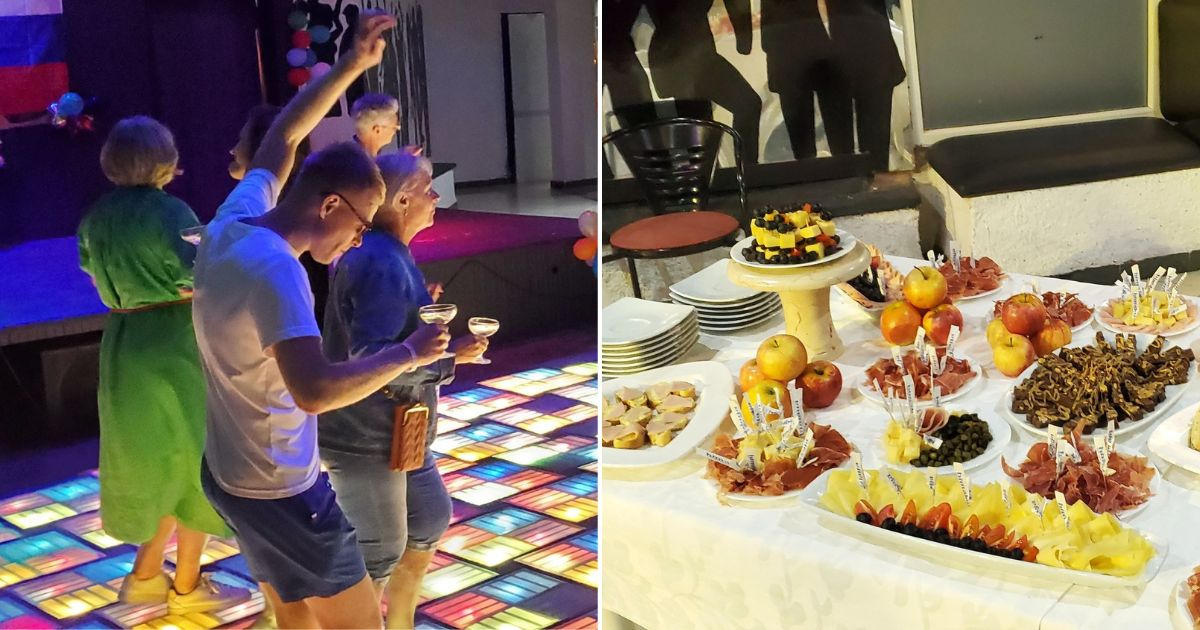
Related videos:
In a country where food scarcity affects millions of people, the Sol Cayo Coco hotel, part of the Meliá Hotels International chain in Ciego de Ávila, celebrated Russian Christmas this Monday with a lavish dinner and dances.
This fact highlights the profound contrasts that exist in Cuba, where tourist destinations reserved for foreigners operate in a reality that is completely disconnected from the needs of the local population.
“At Sol Cayo Coco, we enjoy celebrating different cultures and their customs. This afternoon, we celebrated Russian Christmas,” the hotel noted on its Facebook profile.
In the comments section, the tourist facility boasted: “We organize dinners, cocktails, and parties for regular clients and guests from most visiting nationalities, including Canada,” presenting a “washed” reality of the country, with an opulence that is far removed from the truth.
In an almost ironic way, the profile emphasized that not only do they organize celebrations for Russian and other national festivals, but they also "celebrate Cubanidad Day every Friday."
In the case of Russian Christmas, celebrated on January 7 according to the Julian calendar, it included – as seen in the shared photos – a special banquet and cultural activities intended for the visitors.
Meanwhile, in the streets of the island, Cubans are facing long lines and difficulties accessing basic products such as bread, milk, or oil, reflecting the disparity between tourists' experiences and daily life in the country.
The end of the year in Cuba once again showcased luxury, an abundance of food, and celebrations in hotels, while the people face a deep crisis, with many workers unable to put a piece of meat on the table to share with their families.
While some luxury hotels, such as Grand Sirenis Cayo Santa María and Hotel Playa Cayo Santa María Beach Resort & SPA, showcased on social media images of lavish New Year's parties with abundant food and drinks, the majority of Cubans faced an end to the year marked by scarcity, blackouts, and economic difficulties.
In this same narrative, the Spanish hotel multinational Barceló denied that there is a food shortage in Cuba and, to prove it, published images of its culinary offerings at the Solymar resort restaurant in Varadero.
"Is there scarcity in Cuba? Not at this moment," said an anonymous participant in the Facebook group Barceló Solymar - Occidental Arenas Blancas, created by Alejandro Florat, community manager of the Barceló Group on the Island.
Frequently asked questions about celebrations in hotels in Cuba and food shortages
How was Russian Christmas celebrated at the Sol Cayo Coco hotel?
The Sol Cayo Coco hotel celebrated Russian Christmas with an extravagant dinner and dances, organizing a special banquet and cultural activities for the tourists. This celebration contrasts with the scarcity faced by the Cuban population, who struggle to access basic goods.
Why is there a difference between the lives of tourists and Cubans in Cuba?
The difference is due to differentiated supply and consumption policies. While tourists enjoy luxury products in tourist areas, Cubans face a chronic shortage of basic goods and must deal with long lines and high prices to obtain food and essential items.
What impact does the food crisis have in Cuba?
The food crisis in Cuba has affected the local population, making access to basic foods difficult and driving up prices. Cubans face long lines to obtain essential products such as bread, milk, or oil. This situation has also negatively impacted the island's tourist image.
How has the Cuban government responded to the food shortage?
The Cuban government has been criticized for focusing on tourism and culinary events instead of directly addressing the food shortages. The removal of subsidies for basic goods has worsened the situation, impacting the most vulnerable segments of the population.
Filed under: